|
|
|
||||||||||||
|
Authors, reviewers and the editorial board of the journal "Software Systems: Theory and Applications" are doing everything possible to prevent any manifestations of incompatibility with scientific search, and in particular such as: plagiarism and other infringements of copyrights; self-plagiarism; threats to the health and lives of people, animals or ecosystems; the publication of insufficiently substantiated statements and conclusions; Incorrectness, incompleteness or absence of references to sources; deliberate misrepresentation of information; conflict of interests around the publication; other violations of generally accepted ethical norms and laws. The authors
fully and correctly indicate in the1r article authors, other persons and organizations that financed or otherwise contributed to the research, other subjects of possible conflicts of interest, available to the reader sufficient grounds for verification of each statement (in particular, for verifying evidence or for repeating experiments), sources of borrowing and regulating access to them licenses, formulate the article in such a way as to facilitate the understanding and verification of the results and their justifications by specialists in related fields using standard terminology and notation, clear structure of the presentation, literate and expressive language of scientific text with formulas, tables and illustrations; promptly provide editorial offices with information about itself, helping to exclude the conflict of interests at reviewing, about the errors noticed in the published works, on the circumstances that prevented the publication of the latest version of the article; confirm in the written form the adoption of this declaration and the exclusion of the possibility of simultaneously submitting an article to another peer-reviewed publication and also the exclusion of the possibility of the subsequent publication of the article or its part (in particular, translation into another language) without a clear, complete and unambiguous reference to the source.
Reviewers immediately refuse to review if there is a risk of bias (conflict of interest, incompetence) or untimely evaluation. respect the confidentiality of the review and the timing of the review; objectively and impartially, thoroughly substantiating their opinion, reflect in the review the strengths and weaknesses of the work, giving constructive suggestions for improving the article; promptly inform the editorial offices of the observed violations of ethical standards; Members of the Editorial Board bear full responsibility for everything that is published in the journal; confidential and conflict-free organize the process of objective review and decision-making; make fair and impartial decisions, regardless of race, gender, sexual orientation, religious beliefs, ethnic origin, citizenship or political preferences of authors or commercial interests of editors; develop an editorial policy that ensures maximum transparency and full accountability to the author; protect the integrity of publications, promptly correcting errors and misleading statements, if necessary, in published materials and, if possible, on integrator resources; protect the rights of third parties against unauthorized use of materials; carefully monitor compliance with ethical standards in publications related to research on humans and animals and environmental impacts; inform authors, reviewers and readers about the decisions taken and the expected actions about illegal publications. The editor-in-chief and the publisher
cooperate with other publishers and industry associations, including ethical issues, tracking errors and removing inappropriate publications, adopt and conduct editorial policy in accordance with the Ethical Principles of the Association of Scientific Editors and Publishers and the recommendations of the Ethics Committee publications (COPE).
Any participant in the publication process, who found any violation of ethical or legal norms by authors, reviewers or editors, tries to receive explanations from the suspects, and if the answer is unsatisfactory, ask the publisher, employer, funding organization or other suitable regulatory body to investigate and take action.
|
||||||||||||
| |||||||||||||

